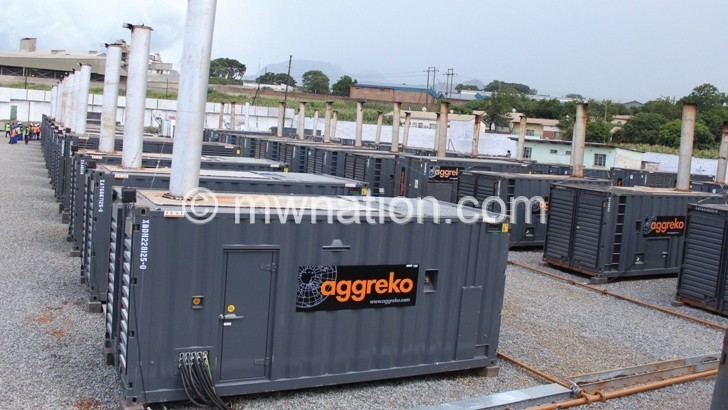Escom on steady path to reduce load-shedding
Escom says diesel-powered generators have reduced load-shedding hours by nearly 75 percent in the last five months and the situation could stabilise further when an additional 20 megawatts (MW) imported from Zambia is added onto the grid by September.
This positive picture is contained in a report Electricity Supply Corporation of Malawi (Escom) senior manager for corporate planning Tanda Kadam’manja presented during a recent regional chapter meeting of the Malawi Confederation of Chambers of Commerce and Industry (MCCCI) in Blantyre.

reduced load-shedding hours
The situation is beginning to raise hopes that Escom is on course to dealing with blackouts in the medium-term.
The report says load-shedding spells reduced from 24 hours in November 2017 to the present six hours, owing to an additional 55MW made available in January following the commissioning by President Peter Mutharika of diesel-powered generators run by Aggreko International Projects, an Independent Power Producer (IPP).
“The emergency diesel generators are running for an average of six hours a day, resulting in load-shedding reduction from an average of 24 hours in November 2017 down to the current six hours since February 2018,” reads the report titled Power Situation: Challenges and Plans.
The report notes that industrial consumers now experience a load-shedding spell of 18 hours only once a week, while their domestic counterparts experience six hours down from 24 hours.
While the current reduction in blackout spells offers some relief to consumers, it is still a far cry from the rising demand for power.
According to figures, demand for power has risen to over 450MW against an installed capacity of 351MW, of which only an estimated 270MW is available.
The report says against this background, embattled Escom is diversifying power generation sourcing from its traditional and precarious rain-fed hydro power grids to fossil-fuel generators and eyes long-term sourcing from IPPs.
According to the 2018 Government Annual Economic Report, Escom posted a K6.3 billion loss in the period ending December 31 2017 which is attributed to the delays in effecting a tariff increase and costs associated with installation of the diesel generators.
Efforts by Escom to seek a bail out of about K50 billion from Treasury was turned down.




